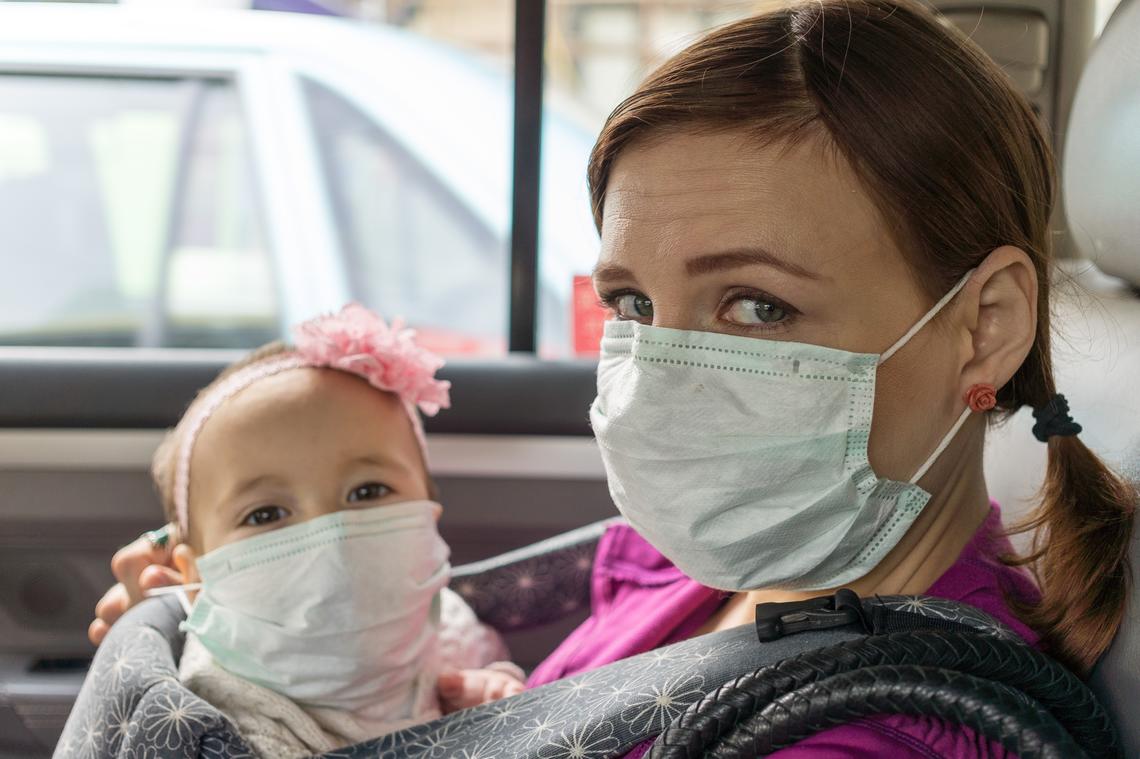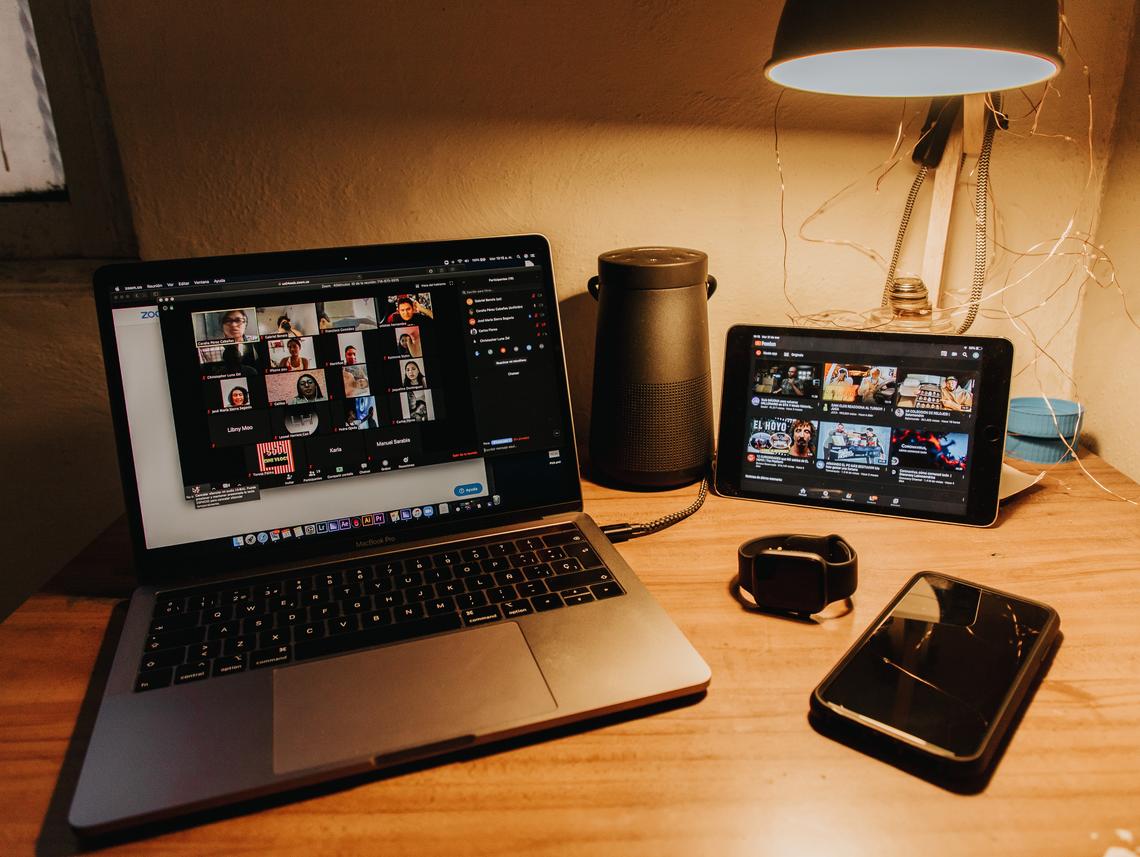May 29, 2020
The new social etiquette in a COVID-19 world: Part 2

Although our cities are, by baby steps, opening up again, we know the effects of the COVID-19 global pandemic will be with us for many months, and perhaps years, to come. The harsh realities of social distancing are not going away any time soon.
We’re left to wonder — what is a socially distancing society like? What are the new rules of engagement in social situations? How do we function when we’re constantly on guard, in fear of strangers as carriers of the virus?
With such questions in mind, we looked to a few University of Calgary experts from a range of fields for insights and advice.
The experts here include classics and religion professor Dr. Peter Toohey, PhD, whose research on the history of emotions speaks to our current social situation in a timely way; and social psychologist Dr. John Manzo, PhD. Here’s what they had to share.

David Veksler on Unsplash
DR. PETER TOOHEY (Classics and Religion)
As we all now face long lineups to access stores which we once accessed freely, Toohey understands the aggravation this causes us. “Yes, people say that queues are a terrible thing,” he acknowledges. “It’s boring and you may be in a hurry. And you don’t wish to turn around and speak to the person behind you, because it might embarrass them, or they might be smelly. Or, you might be smelly.” But, in his new book, Hold On: The Life, Science, and Art of Waiting (written well before COVID-19, he notes) he touches on the joys to be found in queuing — especially in the staggered lineups of the current pandemic, when we’re all required to stand six feet apart.
In these times of social distancing and isolation, when people are feeling deeply lonely, Toohey suggests that queuing might provide moments of salvation.
Take time in a lineup to ... talk
“The whole process seems to me strangely sociable,” he says. “It’s harder to do in a tight queue, when people are elbowing you, but now that we’ve got a little bit of room I find people are turning around and chatting with the person behind them. Or, if you’re with your family and you’re standing around for 20 minutes, why not take this time to talk with your children or your partner? Reconnect with them. Chat away.”
Of course, lineups are not the only moments where people are feeling time drag. At a time when so many aspects of our lives have been put on hold, many have complained of sheer boredom. But Toohey, the author of Boredom: A Lively History suggests that boredom can be a blessing — a time for daydreaming and creativity. This is something many of us seldom had time for in the hustle and bustle of our days before the pandemic.
Let boredom be your guide. You might be surprised as to where it will take you.
Another one of Toohey’s books, Jealousy, feels relevant in his take on the phenomenon of “snitching” during the pandemic, when people are encouraged to report others who are breaking the social distancing rules and endangering public health.
“We’ve always used jealousy in the social sphere to control aberrant behaviour,” he says. “And it can often yield positive results if it stops people from doing crazy things — like passing on a virus at a football game. So there can be some value in this snitching. But it is rooted in competitive jealousy and it’s probably not good for you to be doing it. It turns your brain around, I think.”
Blowing the whistle on whistle-blowers
While people might feel like they’re being altruistic and acting for the good of the public when they blow the whistle on others during the pandemic, Toohey believes that such altruism often emerges from our more base emotions. “People are always keen to get an edge off other people,” he says. “If you’re seeing somebody drinking beer in the park with their friends and you tell on them, are you really looking to public health there, or are you trying to assuage your own feelings? So often it’s competitive jealousy that drives these things. I think it can really be a bad thing.”

Gabriel Benois on Unsplash
DR. JOHN MANZO (Sociology)
As a researcher who studies lived social interaction, with an emphasis on “affable sociability in various public venues,” Manzo has been fascinated and aghast by the societal changes posed by COVID-19.
“Prior to the pandemic I had been researching the lifeworld of the modern coffeehouse, with a focus on how coffeehouses instance locations for what might be thought of as traditional sociality,” says Manzo. “I celebrate them for this reason. But cafes and every other ‘third place’ (in other words, a space that is neither home nor work that permits conviviality) are now closed to us, perhaps never to return. They’ve been part of cultures the world over for millennia. I’m animated by this as much as I mourn it, and wonder how sociability will now take place.” Manzo feels that the future “will have to entail new forms of etiquette and new expectations around comportment of our bodies in the social world.”
Face masks in. Coffeehouses out?
We also must contend with “the now inescapable existence of face masks for everyone, everywhere.” He notes: “I’ve been wearing a mask for only the last week or so, and then only when I am at the grocery store or other enclosed shops, and have been noticing my own engagement with the mask and how it makes me feel. It’s deeply paradoxical. On one hand I feel claustrophobic and even smothered; they are horrible things and I can’t imagine having to wear one for hours at a stretch as do so many workers in so many places. But I also feel virtuous about wearing one; I feel protected and protecting, as if I’m doing good.”
For Manzo, the dilemma is the starting point for investigation. “I can see many topics germane to my work emerging from this pandemic. As social scientists we can’t but be excited by these changes, even as we mourn so, so much.”
- Photo at the top of this article by Fusion Medical Animation on Unsplash
UCalgary resources on COVID-19
For the most up-to-date information about the University of Calgary's response to the spread of COVID-19, visit the UCalgary COVID-19 Response website.
For resources to support students, faculty, staff, alumni, and all our communities during this unprecedented time, visit the UCalgary COVID-19 Community Support website.





